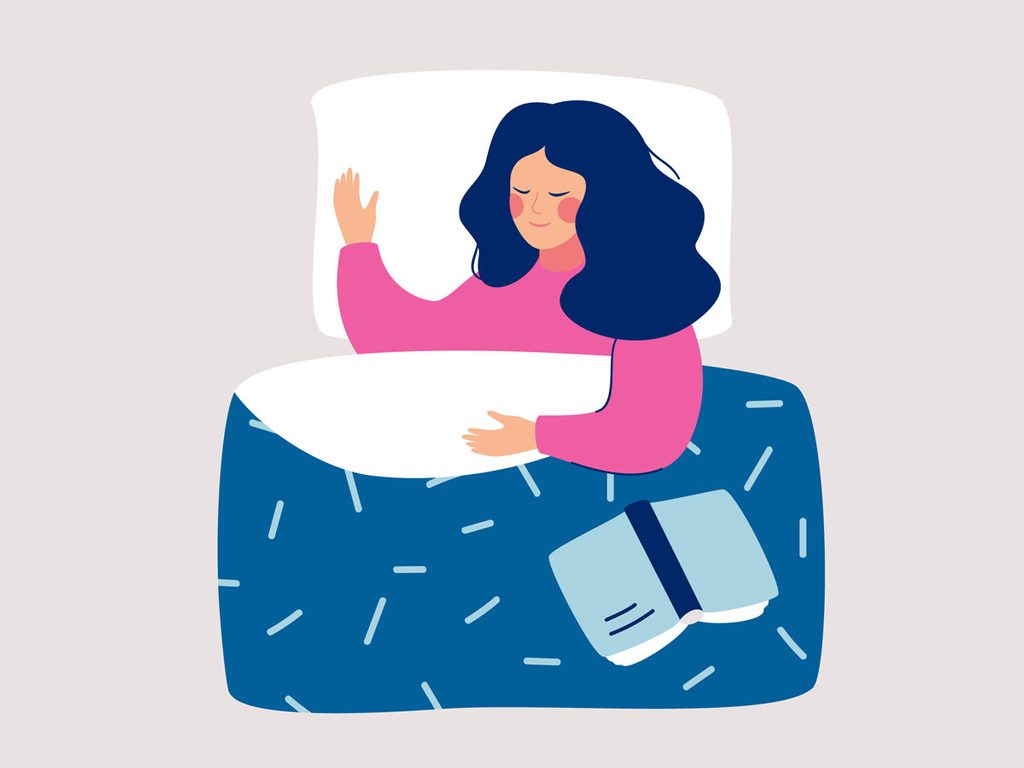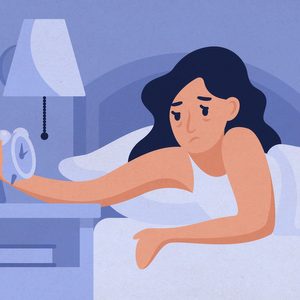This Magical Tip From a Sleep Doctor Will Help Fall Asleep Fast

When your mind refuses to calm down, here's what sleep experts recommend to stop you from tossing and turning all night long.
You know the feeling: You’ve been tossing and turning, and you know for a fact you’re nowhere near falling asleep. So now you’re stressed about the fact that unless you nod off in exactly eight minutes you’ll be under your recommended minimum of seven hours and be exhausted all day and won’t be able to focus, which means you’ll be groggy during your meeting with your boss, so maybe you should sleep in, but then you’d have to skip your morning walk, even though you were just getting back in the habit of getting more active.
Your mind is racing faster than ever, and you can’t find the brakes. The best way to let go of all that anxiety? Simple: Pick up a book.
“Occupying the mind with something other than the business of the day or the stress or the concern of not sleeping is the easiest way to get back to sleep faster,” says Janet Kennedy, PhD, clinical psychologist and founder of NYC Sleep Doctor.
Here’s why it works
Turning on a light so that you can take the time to get into a passage of fiction sounds like it would wake you up even more and cause insomnia, but Kennedy says it actually does the opposite. “Tossing and turning creates tension that creates adrenaline,” she says. “If you distract the mind with something very interesting but not too activating, like engage in reading a story, your mind is diverted away from the stress.”
Just make sure to use a book light rather than the usual lamp on your bedside table, says Michael Breus, PhD, clinical sleep specialist and author of The Power of When. The light wavelengths from a regular lamp signal the brain not to produce melatonin, a hormone that helps lull you to sleep, he says.
Picking up a book is a better alternative to TV, which gives off another type of light that could make you more alert. Plus, reading requires just enough brainpower to mellow your thoughts without looping back to your worries. “It’s easy to watch TV and zone out, and your mind goes back to the stressful stuff,” Dr. Kennedy says. “With reading, you really get your mind involved and have to work a bit. You have to imagine the characters and keep track of the plot.”
A consistent routine also helps you fall asleep faster
For those prone to tossing and turning, start a routine that will calm your mind way before you’re even thinking about crawling into bed. Find a quiet place to write in a worry journal, Dr. Breus says. On the left, list all your problems: everything you did today and want to do tomorrow. Now on the right side, name a solution for each one. It could be a call you need to make, or even the conscious decision to put off thinking about it until later in the week. “Writing down the solution to the problem lowers anxiety levels surrounding what the issue would be,” Dr. Breus says. Consider trying this bedtime tweak for sound sleep.
The key is to do your journaling three or four hours before lights out time. “Don’t do it right before bed, because then you’ll just keep thinking about solutions,” Dr. Breus says. Make an agreement with your partner that you’ll be taking 20 or 30 minutes to yourself right before dinner every night, or do your writing while waiting in the carpool line for your kid. You’ll be worry-free into the evening and all the way through bedtime.







